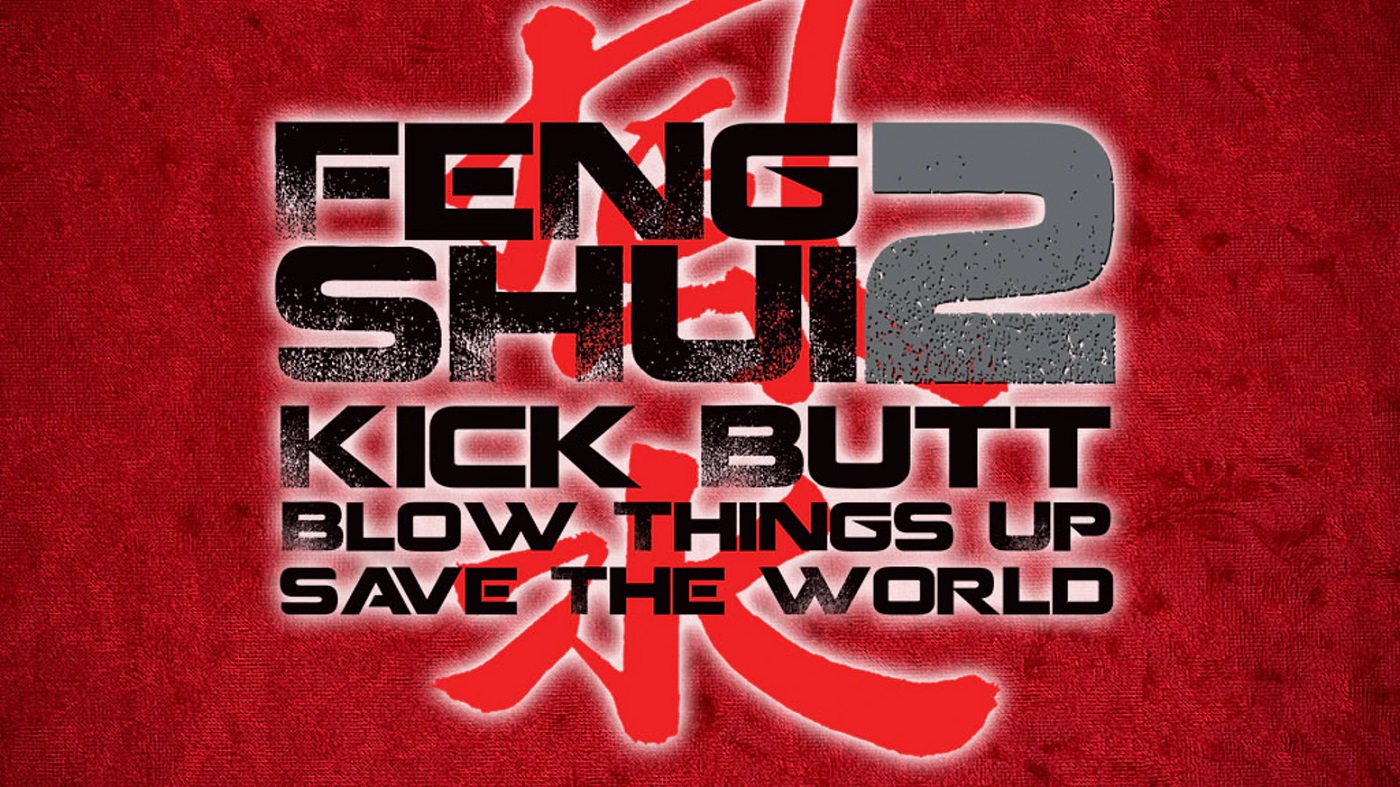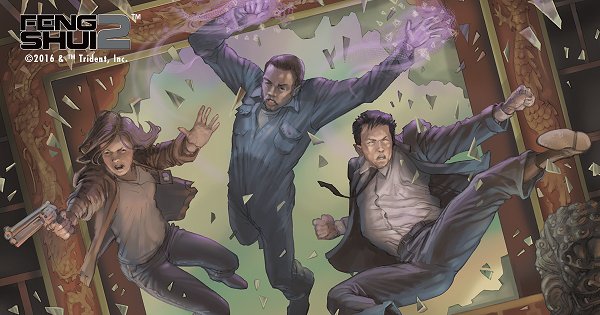RPG Spotlight: Feng Shui

Whether you’re a fan of John Woo or John Wick, Feng Shui is about to be the high action, high flying RPG of your dreams. No stunt double needed.
Feng Shui was originally published in 1996 by Daedalus Entertainment and then shortly after in 1999 by Atlas Games, but in 2015 Feng Shui 2 was published, giving an already pretty great game a possibly overdue update.
At it’s core, Feng Shui is an action movie game with an emphasis on kung fu genre. It’s a high-action system of fights, stunts, high stakes situations, and all of that campy, over the top goodness you turn on an action flick for. And with a setting that specifically allows you to take your game all over space and time, you can visit just about every action sub-genre imaginable if you’d like.
Character creation in Feng Shui 2 simple, giving you a variety of action archetypes to chose from all with their own abilities and scores. While there is room to edit your character between sessions, the goal here is to go from not playing to being right in the game in minutes. Personally, I’m a fan of this concept and it’s one of the stand out features of the Powered by the Apocalypse system games for in my mind. Sometimes you want to build a character yourself from the ground up; other times you want to print our your character sheet, fill in two or three blanks, and start punching.
Game play mechanics are different than other’s I’ve used, encouraging the action part of the action movie to take center stage and the cinematic nature of the game is allowed to flourish. Feng Shui implements a take on two-D-6 concept where you’ll want two very distinguishable D6, one is the “positive dice” while the other is the “negative.” The negative is subtracted from the positive for a sum and that amount will be added to your Action Value. If this number is above or equal to the difficulty set by the GM, the action has succeeded. I’m glossing over a few details here, but that’s the basic gist of combat skill checks. There are, of course, non-combat skills and checks, but those will usually take one dice roll total while combat can last for half an hour or more. And I would be remiss not to mention the Fortune / Chi / Magic / Genome points that every character archetype is assigned for when your character needs a little extra luck. Spending a point from your fortune etc. pool allows you to add another Positive D6 to your roll. But remember that the pool is finite, so be sure to spend them when they’ll count.
Much like many other cinematic style RPGs, the player is allowed to be imaginative with their moves. If it can happen in a movie where everyone is on a wire, where everyone carries guns that never run out ever, where running on or up walls isn’t just possible but expected, it can happen in Feng Shui. Go for it, no answer is wrong. Unless you roll poorly.
Feng Shui is a system that manages to be versatile despite being crated for a very specific genre. Able to go any time or place, this is a game that’s there for all of your kicking, punching, shooting, and improbably jump-flying needs and with a re-playability limited only to the number of awesome action movie tropes you can come up with.
Have you played Feng Shui yet? What did you think? Which action movie sub-genre or trope is your favorite? Let us know in the comments!
Happy Adventuring!








